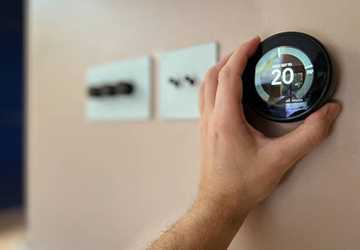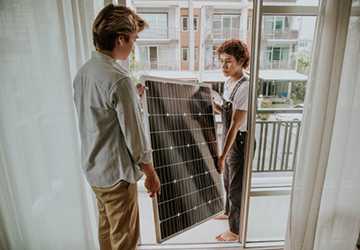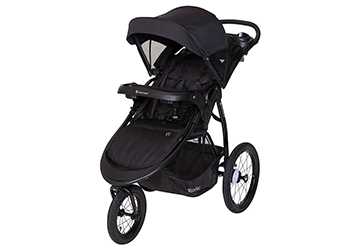How to Make Your Home More Energy Efficient
When the importance of sustainability intertwines with economic rationality, turning your home into an energy-saving haven is not just an option; it's an imperative. Energy efficiency tips can significantly save operating costs and minimize your environmental footprint. This article explores various home energy-saving methods to provide a comfortable, environmentally friendly environment.

Learn about home energy efficiency
The first step to living a sustainable life is understanding what it means to make your home energy efficient. It involves minimizing unnecessary energy consumption, optimizing current energy consumption, and using technology that helps reduce operating costs and environmental impact.
The best ways to improve your home's energy efficiency
Insulation and sealing
●Eliminate drafts: Close gaps around entrances, windows, and other breakpoints to keep conditioned air inside.
●Improve insulation: Focus on attics, exterior walls and subfloors to maintain desired indoor temperatures.
Introduce efficient equipment
●Switch to modern appliances: Prioritize Energy Star-rated appliances that use less energy.
●Maintain device health: Ensure your devices are clean and in good condition to increase efficiency.
Optimize heating and cooling
●Smart Temperature Control: Smart thermostats can optimize your home's heating and cooling patterns.
●Upgrade your heating system: Consider more efficient alternatives such as a heat pump for your heating needs.
●Implement zoned heating and cooling systems to adjust the temperature of occupied areas and reduce energy waste in a targeted manner.
●Also, regular HVAC inspections must be performed to maintain system efficiency and minimize unnecessary energy consumption.
Lighting innovation
●Switch to LEDs: LEDs consume much less energy than traditional light bulbs.
●Maximize daylight: Use natural light to reduce reliance on electric lighting.
Expand your setup with innovative smart home appliances and lighting solutions
●Energy Monitoring: Use smart plugs and energy monitors to monitor and regulate your device's energy consumption carefully.
●Automatic lighting: Uses motion sensors and timers to ensure lighting is only activated when needed, thus minimizing unnecessary power consumption.
Water resource utilization efficiency
●Install high-efficiency faucets: Use shower heads and faucets that reduce water use.
●Option to control hot water heating on demand: Tankless water heaters only heat water on demand, thus saving energy.
● Use water heater insulation: For traditional water heaters, consider using an insulation blanket to reduce heat dissipation and improve efficiency.
Energy Efficiency Tips for Everyday Life
Eliminate hidden energy consumers
●Combating invisible consumption: Internet-connected devices such as chargers and home electronics consume power even when turned off. This phenomenon is called "stealth consumption" or "leakage." Proactively disconnecting these devices can curb unnecessary power consumption.
●Develop energy conservation habits: Check and unplug non-essential devices every night or before leaving home to prevent energy waste easily.
Use smart energy solutions
●Smart Power Management: Smart power strips prevent energy waste by cutting off power to devices in standby mode. Ideal for complex installations such as media centres or home offices, these slats allow for more efficient power management.
●Selective power strip function: Purchase an intelligent power strip or master socket with programmable functions that can turn off peripheral devices when the primary device is turned off, optimizing energy conservation.

Improve window efficiency
●Advantages of modern glazing: By investing in modern glazing, especially those with double-glazed construction filled with an inert gas barrier, heat exchange can be significantly reduced. This keeps the interior comfortable all season long while reducing the load on the heating and cooling systems.
●Find Superior Window Technology: Take your window efficiency further by choosing a model with a low-emissivity (Low-E) coating that reflects thermal radiation. Professional installation can maximize the insulating properties and energy savings of these windows.
Use renewable energy to save energy at home
●Use solar energy: Solar energy systems can significantly reduce energy costs and environmental impact.
●Consider residential wind energy: Small wind turbines provide additional energy for homes with enough space.
The impact of habits on energy efficiency
●Conscious consumption: Understanding energy usage patterns can lead to intelligent energy savings.
●Family involvement: Educating family members on energy-saving practices is critical to collaboration.
Improving energy efficiency outside the home
Community Involvement
● Neighborhood Initiatives: Partner with local community organizations committed to energy efficiency to share resources and approaches.
●Policy support: Support and promote regional and national policies that improve energy efficiency standards and renewable energy options.
Education and awareness
●Training and Conferences: Attend or organize informative conferences to delve into energy efficiency and share insights with others.
●School education: Encourage educational institutions to incorporate energy conservation and environmental protection into curriculum content.
Latest technology and innovation
●Smart Grid: Support developing and deploying intelligent grids in your region to optimize power distribution and minimize waste.
●New renewable energy: Pay attention to new renewable energy, such as tidal and wave energy, and advocate for their research and development.
Financial support
●Funding and Rebates: Investigate and take advantage of grants, rebates and tax credits for energy-efficient home improvements and renewable energy installations.
●Green Financing: Seek green loans and mortgages to provide preferential terms for purchasing or improving energy-efficient properties.
Sustainable lifestyle practices
●Minimize, Reuse, Recycle: Adopt a lifestyle that reduces waste and maximizes resource utilization.
●Eco-friendly commuting: Consider using an electric vehicle, bicycling, walking or public transportation to reduce your environmental impact.
Promote a sustainable society
●Regional Food Supply: Support local farms and gardens to reduce the energy used to transport food.
●Community Renewable Energy Enterprises: Participate in or lead community enterprises such as solar farms or wind power cooperatives to benefit from renewable energy jointly.
Prospect
Continuous progress: Energy efficiency is an ongoing journey. Stay current on new technologies and methods to reduce your home's energy consumption.
Global Impact: Recognizing that individual and collective efforts contribute to global environmental protection - every step toward greater energy efficiency helps mitigate climate change.
Diploma
Taking steps to improve your home's energy efficiency is an ongoing process that will benefit your finances and the planet. Applying these energy efficiency tips and mastering home energy conservation will pave the way to a sustainable living space. Small changes can lead to significant reductions in energy consumption and operating costs.







